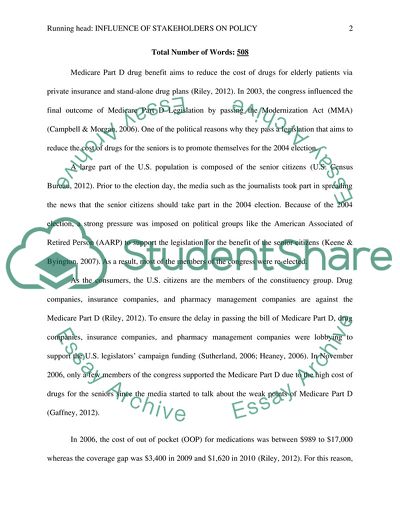Cite this document
(Influence of Stakeholders on the Policy Making Process: Medicare Part Essay, n.d.)
Influence of Stakeholders on the Policy Making Process: Medicare Part Essay. https://studentshare.org/medical-science/1777370-medicare-part-d
Influence of Stakeholders on the Policy Making Process: Medicare Part Essay. https://studentshare.org/medical-science/1777370-medicare-part-d
(Influence of Stakeholders on the Policy Making Process: Medicare Part Essay)
Influence of Stakeholders on the Policy Making Process: Medicare Part Essay. https://studentshare.org/medical-science/1777370-medicare-part-d.
Influence of Stakeholders on the Policy Making Process: Medicare Part Essay. https://studentshare.org/medical-science/1777370-medicare-part-d.
“Influence of Stakeholders on the Policy Making Process: Medicare Part Essay”. https://studentshare.org/medical-science/1777370-medicare-part-d.


